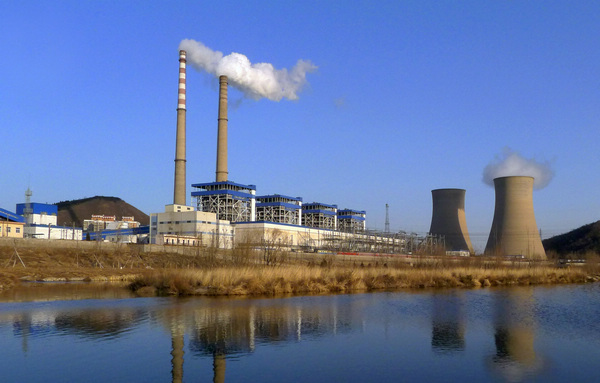Beijing is to take action to make its coal-fired power plants and heating facilities go green amidpublic concern over the city's poor air quality, said a government official.
Zhang Gong, director of Beijing municipal development and reform commission, said that anestimated 80 billion yuan ($13 billion) will be invested to switch the city's coal-fired power plantsand heating facilities to natural gas.
Beijing Jingneng Thermal Power Co Ltd, one of the capital city's largest coal-fired heating and powerplants, is located beside Lianshi Lake in Shijingshan district, about 20 kilometers west of Tian'anmenSquare.
"We want to make sure that power plants and heating facilities will be fueled by natural gas inthe coming three to four years, reducing the use of coal as much as possible," Zhang said onthe sidelines of the annual session of the National People's Congress.
Zhang said the move is set to improve Beijing's air quality and ease public concern over PM2.5,particulate matter smaller than 2.5 micrometers in diameter, which can be hazardous afterreaching a certain concentration.
Emissions from coal-fired power plants and heating facilities, aswell as from the 5 million cars running in Beijing, are a majorsource of PM2.5 in the capital, according to research conductedby the municipal government.
Coal consumption in Beijing was around 26.3 million tons in2011, with coal-fired heating and power plants accounting for 73percent. The remainder was for industrial use, Zhang said.
"So reducing the use of coal is our priority to cut theconcentration of PM2.5 in the city," he said, adding Beijing willuse more green energy in the near future.
PM2.5 has been put higher up the government agenda amidgrowing concern over poor air quality in China's big cities.
According to a statement by the State Council at the end ofFebruary, the four municipalities - Beijing, Shanghai, Tianjin andChongqing - and 27 provincial capitals, as well as three keyregions - the Yangtze and Pearl river deltas and the Beijing-Tianjin-Hebei region - will monitor PM2.5 this year.
More than 100 smaller cities will adopt the new air quality standards in 2013. The statement saidthe standards will be extended to all cities by 2015.
Beijing has been releasing the data on the concentration of PM2.5 to the public since January.
Replacing coal-fired plants with natural gas-fueled ones will make significant contribution towardimproving air quality, said Ma Jun, director of the Institute of Public and Environmental Affairs, aBeijing-based non-governmental organization.
"However, it may take longer than expected," Ma said.
He said Beijing is actually a relatively small consumer of coal compared with its neighbors inHebei province and Tianjin.
"The hard work done by Beijing alone is not going to improve the overall air quality unless theneighboring cities also make an effort," he said.
Zhang from the reform and development commission of Beijing said that the experience ofWestern countries shows that improving air quality is a long and complicated battle.
"The government is no longer focusing solely on the economic growth of the city. We want tohave sustainable development and create a livable city for the people," he said, adding that isthe reason that the government has set an annual target of 8 percent GDP growth during the12th Five-Year Plan period (2011-15) instead of the double-digit growth of previous years.


0 comments:
Post a Comment